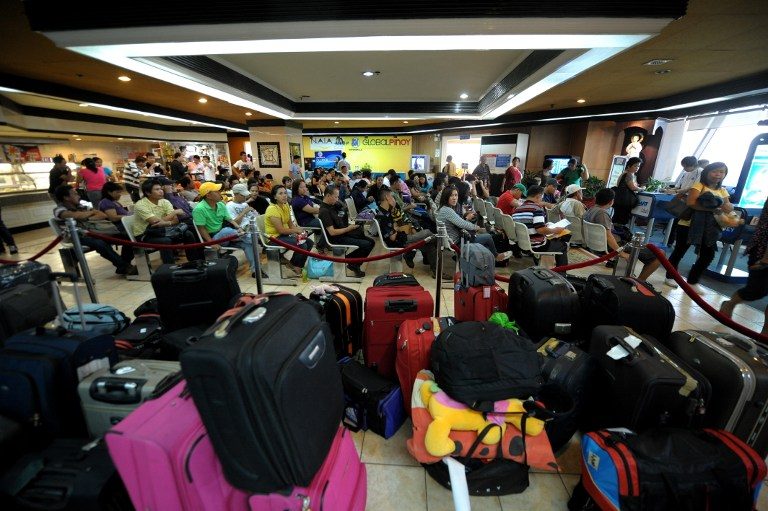SUMMARY
This is AI generated summarization, which may have errors. For context, always refer to the full article.

MANILA, Philippines – The International Labor Organization (ILO) has named the Philippines as one of the pilot countries for its global program for promoting migrant workers’ protection, citing the country’s improving policies on ensuring safe and fair recruitment.
“The Philippines has made significant progress in developing legislation and policies that address challenges in the recruitment process, including the hiring of migrant domestic workers,” said ILO Regional Director for Asia and the Pacific Tomoko Nishimoto.
“It also has another sector – the seafarers – which provides a good model of practice for all: that no recruitment fees are charged against workers,” he added.
ILO’s Integrated Program on Fair Recruitment or FAIR, launched on Wednesday, August 3 in Mandaluyong City, aims to establish a model that will reduce deceptive hiring of migrant workers by partnering with the government, labor organizations, and recruitment agencies.
As a pilot country, the Philippines “will contribute to a global knowledge system on what works and does not work with respect to fair recruitment practices,” said the ILO.
The Philippines will also spearhead the ILO’s multilateral meeting this September, where experts will draft guidelines on eliminating abusive recruitment of overseas laborers not only in the Philippines but also in other parts of the world.
Aside from this comprehensive model, other expected outputs of the 3-year intervention project are:
- Launching of a Migrant Recruitment Monitor, a global website where overseas workers can file their complaints and be referred to authorities that will attend to their concerns. The Philippines is also the test country for the website, which will initially be in Filipino.
- Helping trade unions in coordinating with the government and recruitment firms.
- Review of existing policies on labor recruitment and enforcement.
- Analyzing the feasibility of developing recruitment models.
- Tapping media to help investigate and expose recruitment abuses and promote the solutions tested in pilot countries.
POEA initiatives
Although the Aquino administration faced criticism for its handling of issues concerning overseas Filipino workers (OFWs), the Philippine Overseas Employment Administration (POEA) said they have sent 893 cases of illegal recruitment to prosecution officers. They have also cancelled the licenses of 213 erring recruitment agencies. (READ: Aquino and the continuing plight of OFWs)
“[FAIR] will further strengthen our efforts in enhancing protection of our migrant workers,” said POEA Administrator Hans Leo Cacdac during Wednesday’s launch.
One of the efforts they are taking towards curbing abusive recruitment is the reconstitution of the Presidential Task Force on Illegal Recruitment, a marching order of Labor Secretary Silvestre Bello III.
Cacdac added that the POEA is further promoting a mandatory pre-employment seminar for Filipinos aspiring to work abroad. This is where they learn the challenges of working overseas.
There are also 8 modules uploaded on peos.poea.gov.ph to guide workers on how to avoid illegal recruiters.
Cacdac also said that they have reduced the processing time of their services for OFWs to 72 hours as directed by President Rodrigo Duterte. This is to address the problem of OFWs falling prey to illegal recruiters due to slow government processes. – Rappler.com
Add a comment
How does this make you feel?
There are no comments yet. Add your comment to start the conversation.